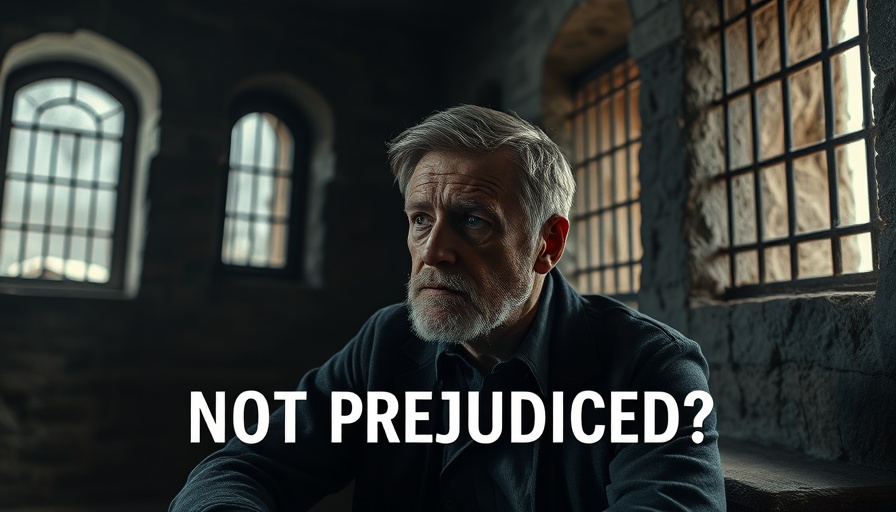
Understanding Prejudice Through a Biblical Lens
In the recent video, So You Think You’re Not Prejudiced?, the discussion provokes a critical examination of our hearts in relation to prejudice—a topic of pressing relevance for faith-driven individuals today. As Christians, we are often called to reflect on our attitudes and behaviors, particularly regarding how we perceive others.
In So You Think You’re Not Prejudiced?, the video sparks a much-needed conversation about self-examination and the biases we may unconsciously harbor.
The essence of this discussion challenges us to examine our biases, which can sometimes be deeply rooted and often unconscious. In a world where division seems rampant, the call to love our neighbors and approach each other with grace has never been more urgent. The notion that many believers might feel justified in their prejudices can lead us to a stark realization: it is not enough to believe; we must also embody Christ-like love and acceptance in our daily lives.
The Call to Self-Examination
We live in a time of social upheaval and introspection. For many spirit-filled Christians, prophetic beliefs serve as a guide in navigating life's complexities. One of the insights this video provides is a reminder that our perspectives can be clouded, often unconsciously reproducing societal biases instead of modeling the radical love of Jesus Christ. It's essential for us, as followers of Christ, to recognize how these biases might manifest in our interactions with others.
Rick Renner highlights the importance of repentance and seeking God’s clarity in these areas. Self-examination can lead to fruitful discussions that promote healing and unity within the body of Christ, fostering relationships that reflect God’s kingdom. Making a commitment to listen and learn from others’ experiences can help create a more inclusive church culture.
Breaking Down Barriers through Community
Personal stories are powerful tools in bridging divides. Reflecting on testimonies from fellow believers who have confronted their biases can serve as encouragement for all. Communities are enriched when diverse voices are welcomed and cherished. The video encourages us to explore these unique narratives, breaking down barriers that prejudice has erected amongst us.
As revivalists and intercessors, fostering a spirit of unity amidst diversity is part of our calling. God’s vision for us as a remnant people hinges on the ability to embrace each other, regardless of preconceived notions or backgrounds. Engaging in honest and vulnerable conversations about prejudice can bring about transformation, not just personally but also within the communities we’re part of.
Prayer as a Tool for Transformation
The power of prayer cannot be overstated in the fight against prejudice. Through intercessory prayer, believers can seek God’s guidance and strength to overcome their biases. Prayer opens our hearts to receive truth and compassion, allowing the Holy Spirit to transform our thoughts and attitudes. As we pray for ourselves and others, we engage in spiritual warfare against the forces that divide us.
Rick Renner reminds us of the role prayer plays in cultivating a spirit of love. Engaging with God invites us to surrender our prejudices at His feet, allowing us to move forward in freedom and grace. When we pray for our communities and ask for God’s heart for others, we start to see the world through His eyes, facilitating a deeper connection with those around us.
Conclusion: Embracing Change
Engaging with the insights from So You Think You’re Not Prejudiced? offers a timely reminder for all believers. The path to eradicating prejudice starts with each of us recognizing our biases and leveraging our communities to invite change. As we strive for personal breakthrough, we also become agents of transformation within the Church and the world at large.
So let us commit anew to seek God, not just in prayer but in our interactions with one another. Together, we can embody the love Christ desires for His followers—building bridges of understanding, empathy, and unity as we walk forward in faith.
 Add Row
Add Row  Add
Add 




Write A Comment